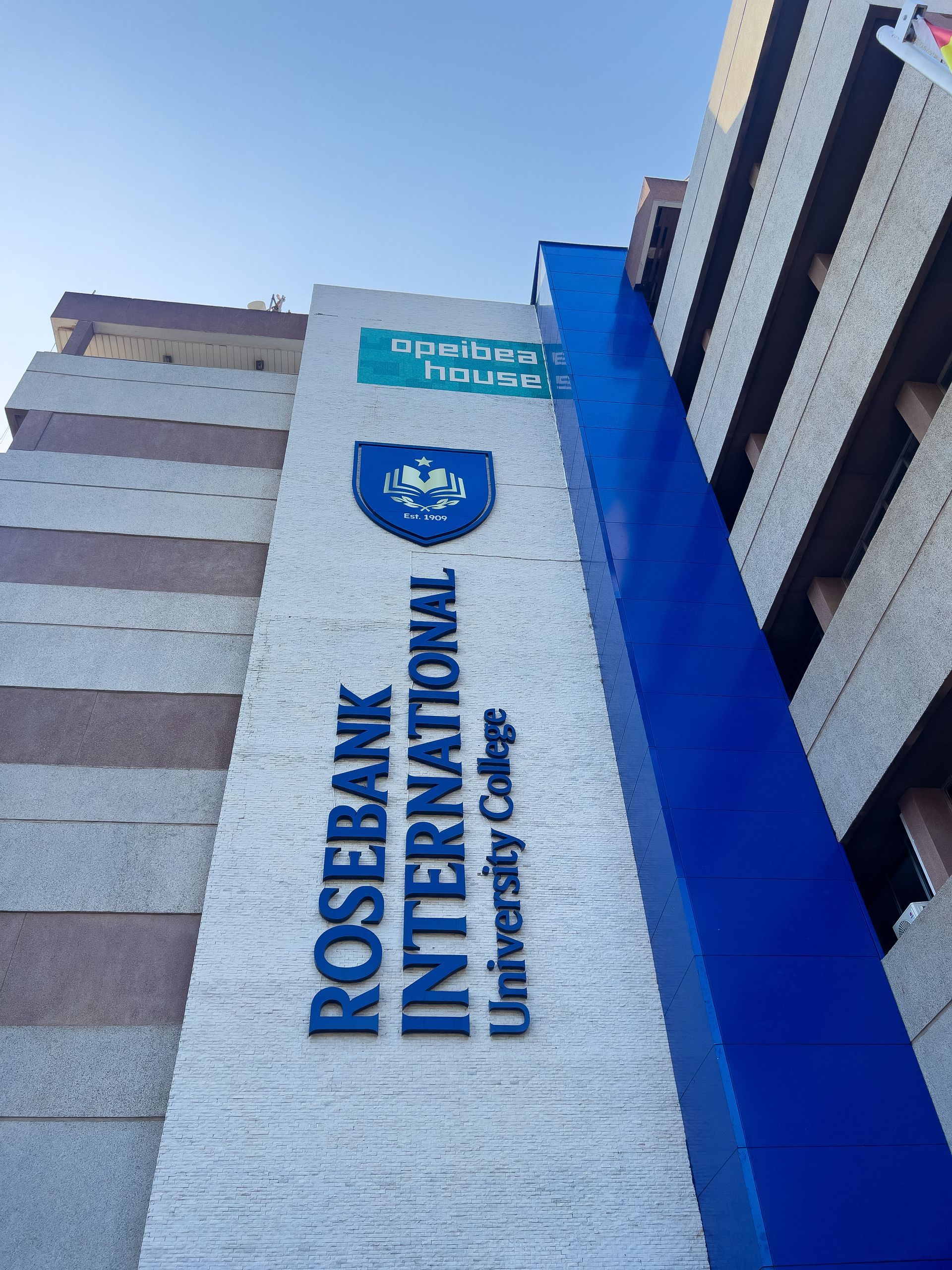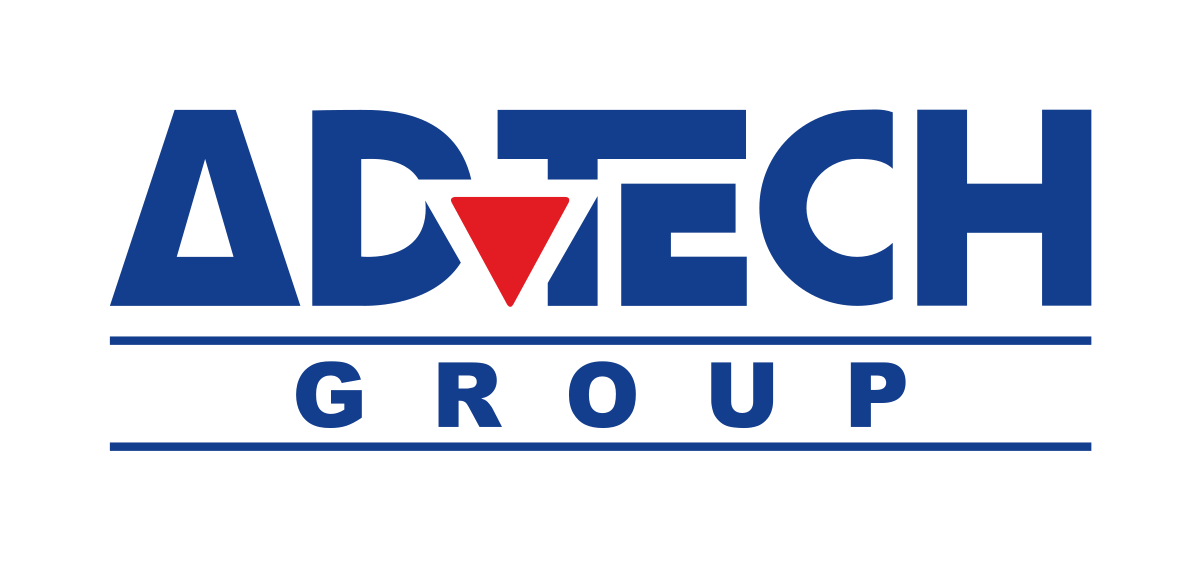Matrics: The 3 times that anxiety can creep up during final exam prep
The upcoming exams are a culmination of 12 years of hard work, and it can feel daunting to reflect on the fact that it all comes down to how you are going to perform in a few weeks’ time
The next few weeks are going to be a whirlwind for South Africa’s Matric Class of 2019, as they cram in their final exam prep while trying to remain calm, collected and focused ahead of each assessment. This is a tall order given the mountains of work that they need to conquer, while also juggling the admin of ensuring that they don’t drop the ball on any of their subjects.
“It goes without saying that you should now be revising as best you can, to ensure you perform as well as possible when final assessment time rolls around,” says Sifiso Mnisi, Head of Programme: Faculty of Humanities at The Independent Institute of Education, SA’s largest private higher education institution.
“However, all the preparation in the world will count for little if you are in a state of mental disarray, and don’t have a handle on doubts and anxieties that may creep in,” he says.
Mnisi says that there are specifically three times when fear and panic may take hold during coming weeks, and each of these situations should be identified, faced and dealt with so that equilibrium can be restored in the minds of learners: 1. In the weeks and days before exams, as time to revise runs out, 2. During exams when it can be hard to determine where attention should be focused and 3. In the actual exam room.
“Firstly, we advise parents and learners to always, always, keep a sense of perspective, and for learners to keep doing their best knowing that no matter what happens, there will always be options. So don’t at this stage waste valuable emotional energy thinking about the what ifs. Banish these concerns from your mind, and resolve to cross future bridges when you get to them.
“Your focus should now be squarely on revision and preparing to sit for exams, not concerns about the future,” he says.
Challenge one: Keeping calm as exams draw closer and time to revise runs out
The upcoming exams is a culmination of 12 years of hard work, and it can feel daunting to reflect on the fact that it all comes down to how you are going to perform in a few weeks’ time.
Until now, you may have felt that even if you are behind, tomorrow is another day. However with the tomorrows running out fast and furiously, many learners may start feeling concerned and even a little panicky.
“When you start getting worried, remember that the best antidote to anxiety is action. Don’t forget how much work you have already put in, and trust the process. If you are having particular concerns about a certain subject, make time to complete another past paper, or chat through your concerns with your teacher.
“And don’t let your fear turn into procrastination because you can’t face the mountain of work you still want to get through. Use your time productively, ensure you get enough exercise and sleep, and push all other thoughts aside. Resolve to address your worries – if they still exist – after the exams, and throw all your energy into doing the work, rather than thinking about the work that you still need to do,” Mnisi says.
Challenge two: Keeping calm during exams, between papers
Once the big day arrives when you sit for your first paper, the whirlwind will intensify. There will be almost no time left for deep revision, and you’ll have to make a call on what to study with the limited time you have, and also how to study. Past papers? Reading through all the work again? Going back to your notes and diagrams?
“The key here is to stay the course and stick to what has worked for you until now. Don’t be distracted by your friends swotting up on a certain subject in a certain way. You know where more attention is needed, and what method of study works best for you.
“It is also very important not to dwell on what lies behind you. If things didn’t go well when you wrote a paper this morning, and you have to prepare for your next paper tomorrow, apply your focus and energy where it can still make a difference, on that which lies ahead. Again, shelve away the worry until later, to deal with only if your concerns actually turn out to have been valid.
“Equally, don’t let a good performance on one paper make you sit back and relax. Work for each and every point, as even marginal improvements in performance can have a major impact on your post-Matric options.”
Challenge three: Keeping calm in the exam room
Even with the best preparation, the realities of the exam room mean that some learners may experience a mid-exam meltdown. These are not unusual, and is often the result of burnout, lack of sleep and the buildup of stress over the past few months.
Key to dealing with panic in the exam room, is to know what is happening.
“If you feel yourself starting to breathe rapidly, become light-headed or like you are out of your depth and can’t do this, recognise what is going on and take back control. Understand that you are panicking, and regain your focus. Then resolve to do as well as possible on this paper and to do what you can. Again, action is the antidote to anxiety.
“Read through the paper and start on those questions that you are able to answer, then go back to those ones which are more challenging. Do as much as you can with the time you have available, and keep perspective while keeping calm.”
Mnisi says that the final exams are not only a test of knowledge, but also of mettle under pressure.
“A calm and focused mind is one of your strongest weapons. By keeping the big picture in mind while at the same time ensuring you are as well prepared as possible, you will be able to perform to the best of your ability.
“And keeping the big picture in mind means that you understand your exam performance, while important, is not the last word on your future. Regardless of what happens, whether you perform above expectations or not as well as expected, there are countless roads that lead to success.”
ADvTECH Updates

Emeris Sandton officially opened its doors on Wednesday, 3 February in what has come to be known as the richest square mile in Africa, bringing a state-of-the-art mega campus to the heart of Johannesburg. The R420 million, 47,000-square-metre campus represents one of the largest private investments in tertiary education in Gauteng, signalling a strong vote of confidence in the future of South African talent development. This landmark development marks the consolidation of The Independent Institute of Education’s Varsity College Sandton and IIE Vega School Bordeaux under one roof, now operating as Emeris and Vega School at Emeris Sandton. With the opening of this new campus, Emeris now operates ten contact campuses and one online centre across South Africa’s major metropolitan areas. Emeris educated approximately 30,000 students in 2025.

Rosebank International University College (RIUC), the groundbreaking institution launched last year by Africa’s leading private education provider, the ADvTECH Group, today proudly welcomed its inaugural cohort of students. Hundreds of exceptional first-time students, carefully selected from an overwhelming pool of more than one thousand highly competitive applications, have now officially commenced their transformative academic journey at RIUC . This select cohort now embarks on an unparalleled opportunity – one that will equip them with the advanced skills, cutting-edge knowledge, and innovative mindset essential to meet the evolving demands of the global workforce in the Fourth Industrial Revolution and beyond. Dr Linda Meyer, President of Rosebank International University College, and MD at The IIE’s Rosebank College and Waterfall School of Business (WSB), said: “Today marks an historic step as we welcome our pioneering inaugural cohort.” “Backed by ADvTECH’s pan-African vision, our accreditations, global partnerships, and GETFund support, RIUC is delivering inclusive, innovative education that prepares students for success in the Fourth Industrial Revolution and beyond, while rooting excellence in African leadership.” “As they step onto the modern campus in Accra for the start of the 2026 academic year, these pioneering students are not only beginning their higher education, but also contributing to a significant milestone in Ghana’s tertiary landscape.” “They are positioned to become future leaders, innovators, and global professionals who will drive meaningful progress both locally and internationally,” she added. RIUC offers accredited programmes across its faculties, including high-demand qualifications such as: Bachelor of Computer and Information Sciences Bachelor of Commerce in Supply Chain Management Bachelor of Hospitality Management Bachelor of Computer and Information Sciences in Application Development Bachelor of Information Technology in Business Systems Bachelor of Commerce in Digital Retail Entrepreneurship RIUC is truly positioned as a hub for global learning, boasting partnerships with: Ghana Tertiary Education Commission (GTEC) Capsicum Culinary Studio (endorsing culinary programs with global industry ties) Association of African Universities Golden Key International Honour Society (global network for high-achieving scholars) ADvTECH and Rosebank College South Africa “Our new students can look forward to international exchange programmes, immersive study abroad opportunities, and access to globally recognized qualifications,” Dr Meyer says. With limited remaining space, prospective students for 2026 and beyond are encouraged to register immediately—online at www.riuc.edu.gh/application—registration or by visiting the campus.

Pinnacle College Kyalami is a school intentionally designed for their community, one in which adaptability, digital fluency and human skills matter as much as academic knowledge. Its educational model blends strong academic foundations with innovation, personalisation and holistic development to prepare learners for futures that are still unfolding. A defining feature of the school is the purposeful integration of technology into everyday learning . Classrooms are equipped with modern digital tools that support interactive, blended and inquiry-based learning. From Grade 0, students are introduced to coding, robotics and computational thinking , helping them develop problem-solving skills, logical reasoning and creative confidence with technology, not as an add-on, but as part of the learning culture. In Grades 4 to 6, mathematics is supported by ADvLEARN , an AI-enhanced approach to learning that enables teachers to track learner progress with greater precision and tailor targeted support or extension to individual needs. This is further strengthened by the school’s Individual Education Plan (IEP) framework, ensuring that each learner’s academic, emotional and developmental needs are understood and supported in a structured, intentional way. Pinnacle College Kyalami also offers a boarding environment for up to 100 learners , providing a secure, nurturing and structured setting that extends learning beyond the classroom. Boarding supports independence, leadership and social development, while offering families a balanced blend of care, routine and opportunity. The campus itself is designed as a “playground for the future” , a space where curiosity is encouraged, collaboration is natural and learning is active. Through project-based work, interdisciplinary thinking and experiential opportunities, learners are supported to engage deeply, think critically and apply knowledge meaningfully. Together, these elements create a learning environment that is not only academically sound, but future-focused by design, developing learners who are confident, capable, adaptable and ready to thrive in a world of constant change. Pinnacle Colleges, a member of the ADvTECH Schools Division, is a leading provider of future-focused education from early learning through to high school. Guided by our promise of Focus for Success, we combine academic excellence with innovation to provide structured pathways and modern learning environments. Our mission is to be the leading school brand for students pursuing tertiary education. By integrating data-informed teaching and technology-enhanced learning, we partner with parents to nurture confident, values-driven young people. With a legacy of excellence and a commitment to personal growth, Pinnacle Colleges prepares students to thrive in a rapidly changing world.

Choosing a public university or private higher education institution is one of the most important decisions prospective students will ever make, and also one of the hardest. While hundreds of thousands of students have already been accepted into further study for 2026, many others still have to make the call before the official start of the academic year. For these students, and senior high students who will have to consider their next steps in coming months and years, it is important to look beyond the brochure, an education expert says. “For some, choosing a higher education institution is about a taking the first independent step. For others, it’s about returning to study after years in the workplace, fitting lectures around meetings, assignments around family life, and ambition around reality,” says Nadia Landman, Head of Academic Quality Management Systems at ADvTECH’s Independent Institute of Education. Landman notes that while open days help, and polished brochures showcasing impressive campuses reassure, prospective students should attempt to gain a good understanding of what everyday life will actually look like once the semester starts. WHEN REALITY HITS AND STUDENT SUPPORT BECOMES CRUCIAL The real test of an institution rarely happens in week one. It happens a few weeks in, when deadlines stack up, confidence dips, work pressures increase, and life doesn’t politely pause for assignments. “Every institution talks about student support,” says Landman, “but what matters is whether that support is visible and accessible when students begin to struggle, not only when they’ve already failed.” For parents, that may mean asking how an institution identifies first-year students who are falling behind and what support is then made available. For adult learners, it means asking different but equally practical questions: Who do I contact when work deadlines clash with assessments? How accessible are lecturers outside of office hours? Are sessions recorded and made available should I miss a lecture? Institutions that understand student reality, across ages and stages, can explain clearly how they support learners before pressure becomes a crisis. WHO IS ACTUALLY DOING THE TEACHING? Behind every qualification is a lecturer, or a team of lecturers, responsible for turning content into learning. Qualifications and experience matter. But so does engagement, responsiveness, and an understanding of who is sitting on the other side of the desk or screen. “Adult learners bring professional experience, practical questions, and limited time. Parents want reassurance that lecturers are not only knowledgeable, but attentive and accountable. Strong institutions support their lecturers to teach well, and they take student feedback seriously,” says Landman. WORKING WITH REAL-WORLD REALITIES Few people still believe that a qualification alone guarantees a career. Parents worry about employability and adult students worry about relevance. Both are asking the same underlying question: Will this programme help me adapt to a changing world? “Curricula should not be static documents. They should evolve with industry, technology, and society. Institutions committed to quality review their programmes regularly, involve industry voices, provide work integrated learning opportunities, and assess students in ways that reflect real-world complexity, not just academic theory,” says Landman. “The aim is capability, not just completion.” WHY QUALITY AND GOVERNANCE MATTER Accreditation, assessment moderation, and academic integrity may sound bureaucratic, but they quietly protect the value of the qualification, and the effort invested in earning it. “Quality systems aren’t about red tape,” says Landman. “They exist to ensure fairness, credibility, and consistency, whether you’re studying full-time straight out of school or part-time while working.” Institutions that take quality seriously are open about how these systems work and why they matter. One of the clearest signals is the quality of service of an institution. How quickly are emails answered? Are queries met with empathy or deflection? Is communication clear, honest, and respectful of people’s time? Over time, these everyday interactions reveal whether an institution is designed around systems, or around students with real lives. “Higher education is not a transaction. It’s a commitment – of time, energy, and belief in a better future. Parents may not walk the journey for their children. Adult learners may not have the luxury of starting over if things go wrong. In both cases, the choice of institution matters deeply,” Landman says. “When looking at your options, understand that the strongest institutions are not defined by the loudest claims. They are defined by their willingness to answer difficult questions openly, thoughtfully, and without hesitation. And it is in asking those questions, early, calmly, and with intention, that both parents and adult learners move beyond the brochure and towards a decision that truly supports success.” Note: Recent developments in national higher education policy are helping to bring greater clarity for prospective South African students. The Department of Higher Education and Training’s policy on the recognition of institutional types is designed to ensure that different kinds of higher education institutions are clearly defined, appropriately regulated, and transparent about what they are established to offer. For students and families navigating an increasingly complex higher education landscape, this clarity will support more informed decision-making, helping them choose institutions that are aligned with their academic goals, life circumstances, and preferred mode of study, rather than relying on assumptions or labels. Policy implementation can only proceed once regulations are published.

JSE-listed ADvTECH is celebrating another year of outstanding academic performance following the release of the 2025 IEB Matric results. Three of the group’s schools – Crawford Sandton, Crawford La Lucia, and Glenwood House were ranked in the top ten co-educational schools. Across its 103 South African schools, ADvTECH’s pass and bachelor’s pass rates for 2025 were 99,7% and 94,0% respectively, with an impressive 3 371 distinctions at an average of 2,1 per student. 16 students from the ADvTECH group were recognised for Outstanding Performance by the IEB and a further 14 for Commendable Achievement. Significantly, while the national IEB average dropped year-on-year, ADvTECH’s pass rate increased by 0.3%. “Another strong set of results was achieved by our schools in 2025. We congratulate our students and teachers for their commitment and dedication”, commented Desiree Hugo, Academic Head: ADvTECH Schools. Hugo says that the group’s performance is the result of a number of initiatives introduced over the past few years. "ADvTECH has invested significantly in AI enhanced personalised learning and teacher training, ensuring that each student achieves their full potential. With a strong analytical focus on academic data, we have been able to ensure improvement for every student. We continue to strive towards consistently superior outcomes, leading the way with global best practice in education." Hugo added that a special note of congratulation was due to The Bridge Assisted Learning School in Lonehill, whose first Matric cohort achieved an impressive 100% pass rate. ADvTECH’s schools' brands include Crawford International, Pinnacle Colleges, Trinityhouse Schools, The Bridge Assisted Learning School, Evolve Online Schools and Abbotts Colleges.

ADvTECH Limited (Incorporated in the Republic of South Africa) (Registration number 1990/001119/06) Share code: ADH ISIN: ZAE000031035 (“ADvTECH” or “the Company”) DEALINGS IN SECURITIES BY A DIRECTOR OF A MAJOR SUBSIDIARY OF THE COMPANY AND AN ASSOCIATE OF SUCH DIRECTOR In compliance with the JSE Limited Listings Requirements the following information is disclosed in respect of dealings in ADvTECH securities by a Director of a Major Subsidiary of the Company and an associate of such a Director.

ADvTECH Limited (Incorporated in the Republic of South Africa) (Registration number 1990/001119/06) Share code: ADH ISIN: ZAE000031035 (“ADvTECH”) APPOINTMENT OF LEAD INDEPENDENT DIRECTOR (“LID”) In compliance with the JSE Listings Requirements, shareholders are advised of the following changes to the important function of a director. Harvey Christophers (“Harvey”), currently an independent non-executive director and member of the Audit and Risk, Investment and Remuneration Committees, has been appointment as Lead Independent Director with effect from 27 November 2025. Harvey will also being taking over the role of Chairperson of the Audit and Risk Committee, effective 1 January 2026, following the retirement of Keith Warburton as published on SENS, 8 April 2025. 28 November 2025 Johannesburg Sponsor: Bridge Capital Advisors Proprietary Limited

ADvTECH Limited (Incorporated in the Republic of South Africa) (Registration number 1990/001119/06) Share code: ADH ISIN: ZAE000031035 (“ADvTECH” or “the Company”) DEALINGS IN SECURITIES BY A PRESCRIBED OFFICER OF THE COMPANY In compliance with the JSE Limited Listings Requirements the following information is disclosed in respect of dealings in ADvTECH securities by a Prescribed Officer of the Company.



